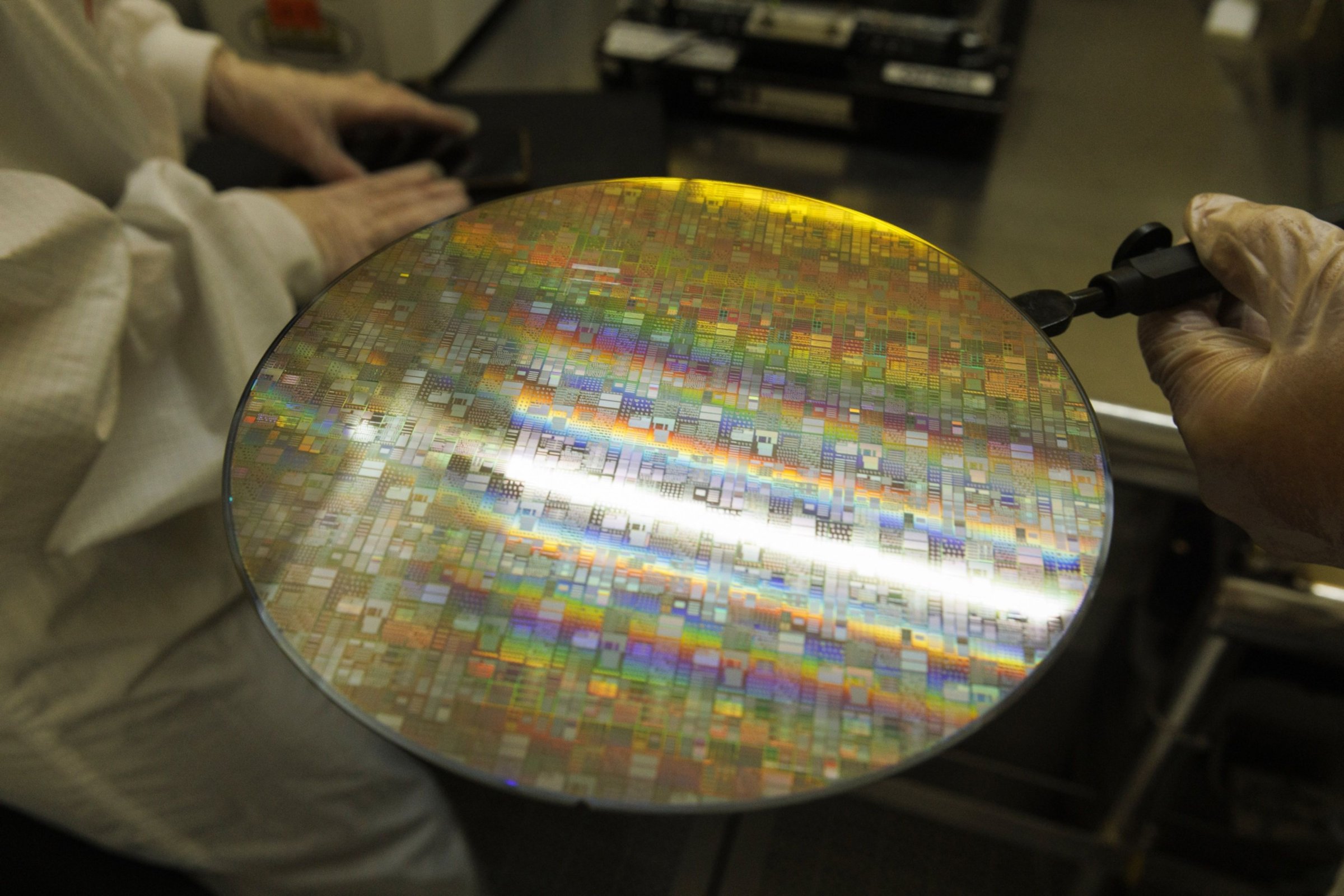
China lashed out at a $52 billion program to expand American chipmaking, saying the landmark blueprint contains elements that violate fair market principles and targets Beijing’s own efforts to build a semiconductor industry.
The U.S. Chips Act, signed into law this month and part of an overall package of incentives worth in excess of $200 billion, is intended to give China’s rivals a helping hand, said Yu Xiekang, vice chairman of the China Semiconductor Industry Association. Parts of it also clearly discriminate against the Asian country, he said without elaborating.
The U.S. legislation contains clauses that specifically prohibit companies that receive funding from expanding production of advanced chips in China. Yu’s comments mirror accusations from Washington that the Chinese government uses subsidies and other less-tangible policy measures to propel the growth of local players such as Semiconductor Manufacturing International Corp. and Yangtze Memory Technologies Co.
Read More: How China Is Using AI to Fuel the Next Industrial Revolution
“We resolutely oppose the U.S.’s restrictive actions targeting certain countries,” Yu told delegates to an industry conference in Nanjing. “It contains essentially discriminatory clauses in market competition and creates an unfair playing field, which goes against the WTO’s fair-trade principles.”
The U.S. has in past years ramped up a campaign to try and contain China’s chipmaking ambitions — a source of increasing frustration to Beijing. Washington is slapping ever-tighter restrictions on the country’s firms, increasingly limiting the kind of chipmaking equipment that American companies can export to Chinese customers, while enlisting allied countries so that key suppliers like the Netherlands’ ASML Holding NV and Japan’s Nikon Corp. join a technology blockade.
China should continue providing policy support to its semiconductor industry to resolve “chokepoints”, or bottlenecks that stymie technological breakthroughs, Yu said.
The country can point to some success in its efforts. SMIC has likely advanced its production technology by two generations despite U.S. sanctions — though industry experts say that may be overstated. The country has also vastly increased memory chip capacity through Yangtze Memory and Changxin Memory Technologies Inc.
Sales by the domestic chip sector — the world’s largest — grew 18% in 2021, though that’s expected to slow to 15% this year as the economic slowdown and Covid lockdowns curtail demand, Yu added.
“We could enter a new structural adjustment period,” warned Ma Weiqing, vice president of China Resources Microelectronics Ltd. Shipments have begun to decline from June, potentially signaling a peak, he told the Nanjing delegates.
Read More: How TikTok Found Itself In the Middle of a U.S.-China Tech War
China’s top leadership has grown increasingly frustrated with a years-long failure to develop semiconductors that can replace U.S. circuitry, despite allocating more than $100 billion to the sector in past years. The Nanjing forum marked the industry’s first major official gathering since Beijing initiated a series of investigations into potential graft within the industry.
Critics of Beijing’s top-down policies have pointed out the enormous inefficiency that can result from freely doling out subsidies. Local media have reported about companies with scant experience winning incentives or grants for pursuing research. Powerful local interests have chased government money by championing projects in hopes of securing subsidies and, at times, political prestige.
The U.S. Chips Act only brings more uncertainty to the entire industry and China needs to counter that effort, said Hu Wenlong, vice president of Tongfu Microelectronics Co., one of China’s largest chip packaging companies.
“In the face of emerging challenges, the government, companies, finance, investment firms and colleges should work together more closely” for technology breakthroughs, he told the conference.
More Must-Reads from TIME
- Donald Trump Is TIME's 2024 Person of the Year
- Why We Chose Trump as Person of the Year
- Is Intermittent Fasting Good or Bad for You?
- The 100 Must-Read Books of 2024
- The 20 Best Christmas TV Episodes
- Column: If Optimism Feels Ridiculous Now, Try Hope
- The Future of Climate Action Is Trade Policy
- Merle Bombardieri Is Helping People Make the Baby Decision
Contact us at letters@time.com